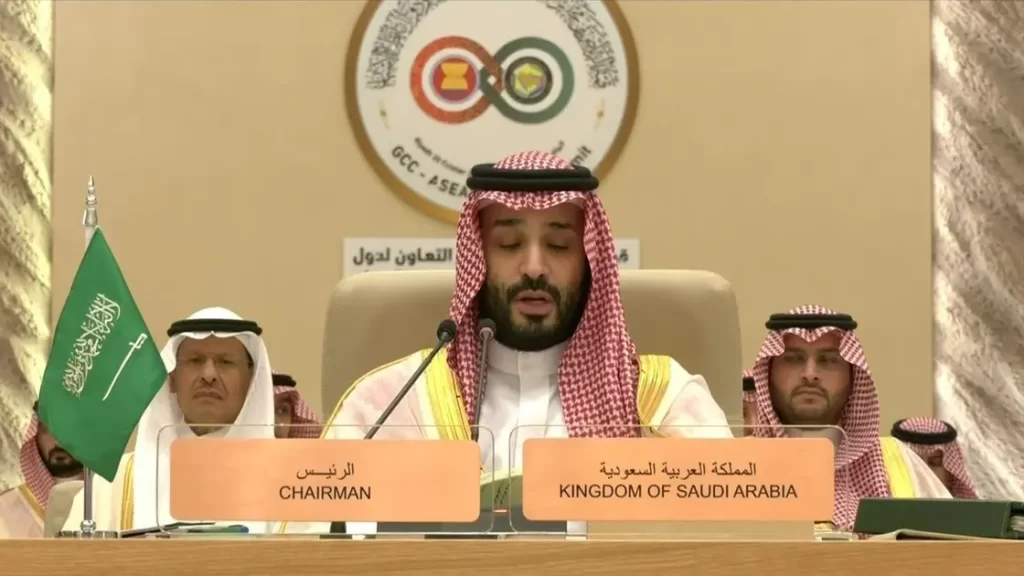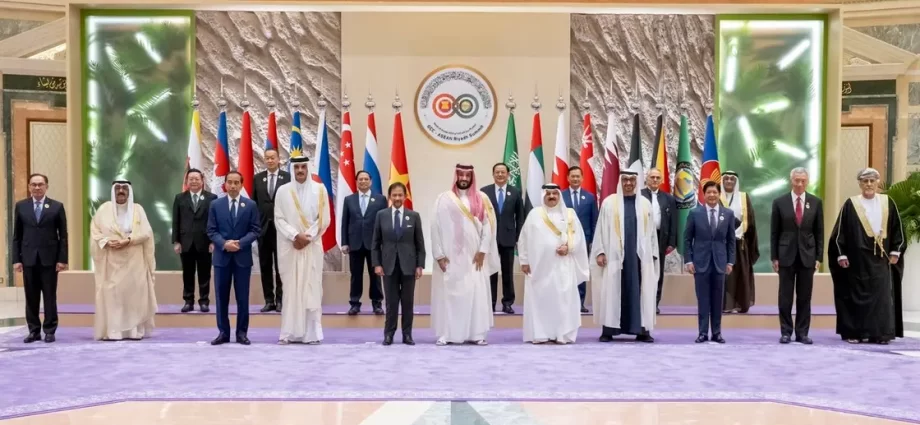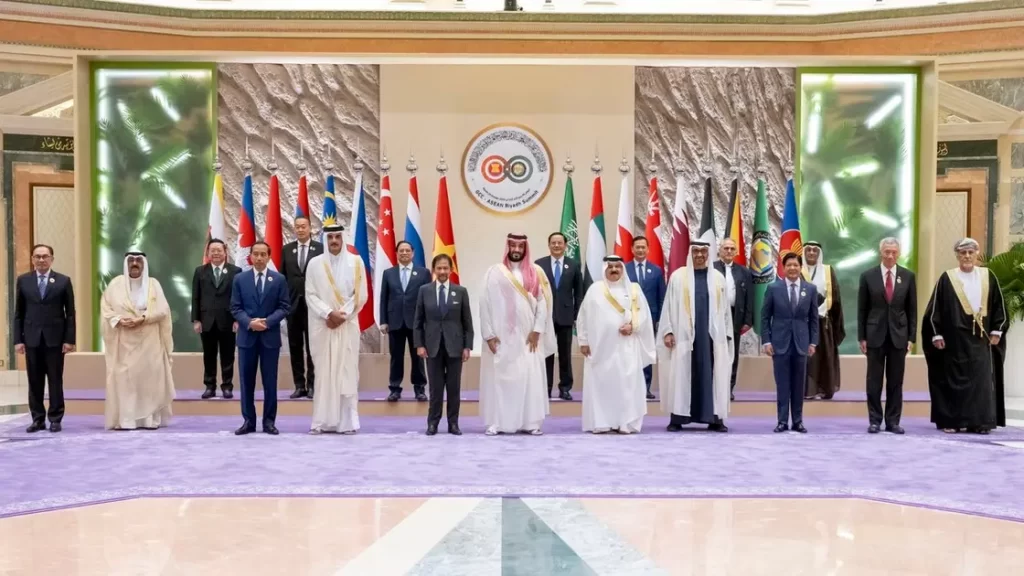Leaders of GCC nations and countries in the ASEAN group voiced “grave concerns” over the escalating violence in Gaza and condemned all attacks against civilians.
In a joint statement following a summit between the two blocs in Riyadh, the leaders voiced the importance of providing access to humanitarian aid and other basic necessities to the Gaza Strip, and called for the restoration of electricity, water, fuel and food to the strip.
Earlier on Friday, UN Secretary-General Antonio Guterres visited the Rafah border crossing and said aid trucks needed to move as quickly as possible from Egypt into the besieged Palestinian enclave of Gaza to alleviate a humanitarian crisis.

The Gaza-focused statement also called for the release of civilian hostages who have been held since Hamas’ surprise attack on Israel on October 7.
Hamas is thought to be holding nearly 200 captive, a majority of whom are Israelis and others, tourists. The Israeli army said that most of those being held are alive.
It also highlighted the need to work toward a “peaceful resolution to the conflict with a view to realizing the two-state solution based on the pre-1967 borders in accordance with international law and the relevant UN Security Council (UNSC) resolutions.”
Following the deadly Hamas assault, Tel Aviv declared war and has leveled numerous city blocks through airstrikes in Gaza citing hotspots for the militant group. The Palestinian health ministry said at least 4,100 people were killed since October 7, with over 13,000 injured. Over 1,400 have been killed in Israel.
Finally, it stated the importance of supporting peace initiatives laid out by Saudi Arabia, the European Union and the Arab League, and reviving the Middle East peace process along with the efforts of Egypt and Jordan.
A flurry of world leaders visited Israel and the neighboring Gulf region, including US President Joe Biden and UK Prime Minister Rishi Sunak, who have all called for calm while backing the far-right Israeli government’s actions.
The GCC-ASEAN Riyadh Summit, held in the Saudi capital city, saw leaders from the six Gulf Cooperation Council countries, including UAE President Sheikh Mohamed bin Zayed, Qatari Emir Sheikh Tamim bin Hamad and Bahraini King Hamad bin Isa, attend the meeting.
The ASEAN group has ten members: Brunei, Cambodia, Indonesia, Laos, Malaysia, Myanmar, the Philippines, Singapore, Thailand, and Vietnam. Senior representatives of these nations like Thai Prime Minister Srettha Thavisin and Malaysian Prime Minister Anwar Ibrahim, participated in the summit.
A separate joint statement discussed furthering cooperation in political and security sectors, trade and investment, agriculture and food security, energy, tourism, education, and human resources capacity building.
Regular meetings will be held to build growing ties and exchange information to facilitate increased collaboration.


